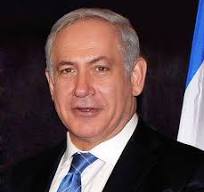The International Criminal Court (ICC) made global headlines this week by issuing arrest warrants for Israeli Prime Minister Benjamin Netanyahu and former Defense Minister Yoav Gallant. The court accuses the two leaders of committing war crimes and crimes against humanity during recent military operations in Gaza. This unprecedented move marks the first time the ICC has targeted a Western-backed leader, drawing both praise and condemnation from around the world. With 124 member states potentially obligated to enforce these warrants, the implications for international justice, diplomacy, and the Israel-Palestine conflict are profound.
Netanyahu: Allegations and Accusations
The ICC alleges that Netanyahu and Gallant bear direct responsibility for employing starvation as a method of warfare and for intentionally targeting civilians in Gaza. These accusations arise from Israel’s military operations that led to widespread displacement, significant civilian casualties, and the destruction of critical infrastructure. The actions, according to the court, violate international humanitarian law.
Netanyahu’s office responded swiftly, denouncing the warrants as “antisemitic” and labelling the ICC a “biased and discriminatory political body.” The Israeli government insists that its military actions are defensive measures aimed at neutralizing threats posed by Hamas. Similarly, Israel’s allies, particularly the United States, have dismissed the ICC’s move. White House officials described the warrants as “outrageous, unlawful, and dangerous,” arguing that the ICC lacks jurisdiction over the matter.

Parallel Accusations Against Hamas
In a notable parallel, the ICC also issued an arrest warrant for Mohammed Deif, a top military commander of Hamas. Deif stands accused of war crimes and crimes against humanity related to attacks on Israeli civilians. However, the ICC acknowledged that reports of Deif’s death in a July airstrike remain unverified, adding a layer of complexity to the case.
This dual approach highlights the ICC’s attempt to present a balanced narrative. Both sides of the conflict are being scrutinized for actions that may constitute war crimes, emphasizing the principle that no one is above the law. Yet, critics argue that the ICC’s focus on high-profile figures like Netanyahu may overshadow its broader goals of impartial justice.
Impacts on Israel and the Middle East
The warrants against Netanyahu and Gallant are unlikely to lead to immediate arrests, as Israel is not a member of the ICC and does not recognize its jurisdiction. However, the warrants place limitations on the movements of both leaders. Should they travel to an ICC member state, they risk arrest and extradition. This situation could strain Israel’s diplomatic relations with countries that are signatories to the ICC’s Rome Statute.
Domestically, the warrants may bolster Netanyahu’s political position among his supporters. By portraying himself as a target of international bias, Netanyahu could rally nationalist sentiments and solidify his base. However, the move may also embolden critics within Israel who oppose his policies, particularly regarding the handling of the Gaza conflict.
On the international stage, the warrants complicate efforts to normalize relations between Israel and Arab states, such as Saudi Arabia. Public opinion in the Arab world may push governments to adopt a harder stance on Israel, potentially stalling peace initiatives. Additionally, the warrants underscore the growing international scrutiny of Israel’s actions in Gaza, further isolating the country diplomatically.
Repercussions for the ICC
For the ICC, this development is both a triumph and a gamble. The court has long faced criticism for its perceived bias and ineffectiveness in holding powerful leaders accountable. By targeting Netanyahu, the ICC asserts its commitment to justice, regardless of political alliances. However, this move also risks backlash from Western powers and could deepen divisions among ICC member states.
The ICC’s ability to enforce the warrants remains uncertain. If the warrants are not executed, the court risks being seen as a symbolic institution with limited practical authority. On the other hand, successful enforcement would set a historic precedent, potentially deterring future violations of international law.
Is This a Victory?
The ICC’s decision can be seen as a symbolic victory for advocates of international justice and Palestinian rights. It amplifies calls for accountability and highlights the human cost of the Gaza conflict. However, it does not change the realities on the ground. For Israel, the warrants are a diplomatic and public relations challenge, but they may also serve as a rallying point for nationalist and hardline factions.
For Palestinians, the warrants provide validation of their grievances, but they are unlikely to translate into immediate political or territorial gains. Similarly, for the ICC, this move represents a bold assertion of its role in global justice, but its long-term impact depends on enforcement and broader international support.
A Contentious Turning Point
The ICC’s arrest warrants against Netanyahu and Gallant signify a critical juncture in the pursuit of international justice. While the move has sparked debate over its legality, feasibility, and impartiality, it undeniably reshapes the discourse surrounding accountability in conflict zones. Whether this moment will lead to tangible change or remain a symbolic gesture will depend on the actions of the international community in the months and years to come.






